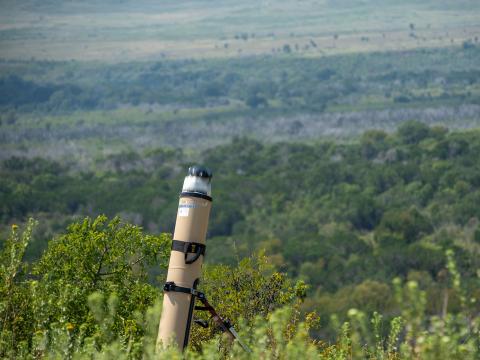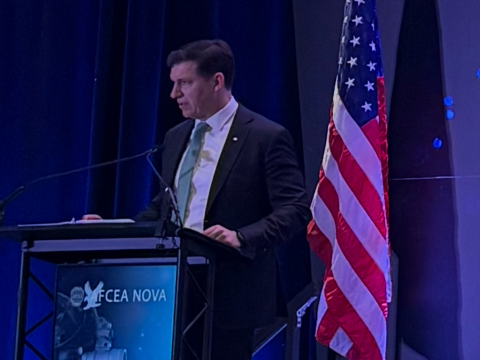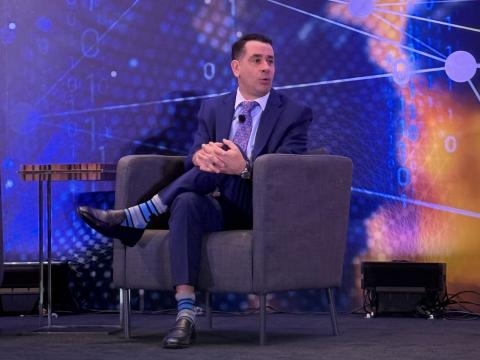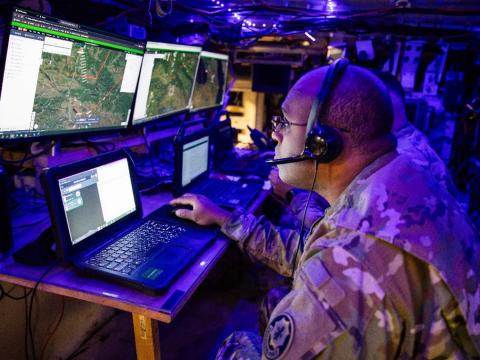Breaking the Mold for Contracting Related to the Army's NGC2
As infrastructure development for the Next Generation Command and Control (NGC2) begins to ramp up, so too are questions surrounding the contracting procedures for the monumental movement. Because of this, U.S. Army Futures Command (AFC) leaders are attempting to revolutionize and break the mold of the process, according to Joseph Welch, deputy to the commanding general, AFC.
AFC officials are intending to continue the momentum and success of efforts that crews devised within their lab system. This shift would avoid current problems they are seeing. Specifically, some lab-based endeavors demonstrate potential, but traditionally, personnel are not following up and furthering the development of these capabilities, according to Welch. During his keynote address at TechNet Augusta 2025, Welch explained how this change is taking place.
“That’s really been enabled through some authorities that have been relatively recently passed through Congress, who really enable us to avoid that valley of death that typically occurs when we have a lab-based effort,” Welch said.
“The message I want you to take away from that, especially if you are in industry, is that as you’re working with our lab systems, understand that we, the Army and the Department of Defense, do have this flexibility, and we are able to more rapidly move into prototyping in the event of production based on those,” Welch added. “So, maybe there’s still a valley of death, but if it exists, maybe people aren’t paying enough attention to the way that they can move things forward.”
Maybe there’s still a valley of death, but if it exists, maybe people aren’t paying enough attention to the way that they can move things forward.
Furthermore, AFC leaders want to foster and encourage more competition, which comes as Army officials are in the process of establishing a culture of innovation across the force. AFC personnel are working to fulfill their desire to intensify competition by leveraging commercial solutions openings. This can help bolster their attempt to further develop those aforementioned lab-based systems, and it can allow leaders to look at real options, according to Welch. Additionally, this is an exercise officials can complete quickly.
“That’s going to end up wrapping up. Every indication I have is that that’s going to be within three months,” Welch said. “From the request for white paper all the way to the word of that next phase there. So, we’re able to move very, very rapidly on very significant efforts through these tools that have been given to us by Congress and then further emphasized through executive orders and secretary of defense memorandum. So, [I am] really excited about the trailblazing we’re doing on the contracting front in that area.”
TechNet Augusta is organized by AFCEA International with help from the U.S. Army Cyber Center of Excellence. SIGNAL Media is the official media of AFCEA International.




Comments